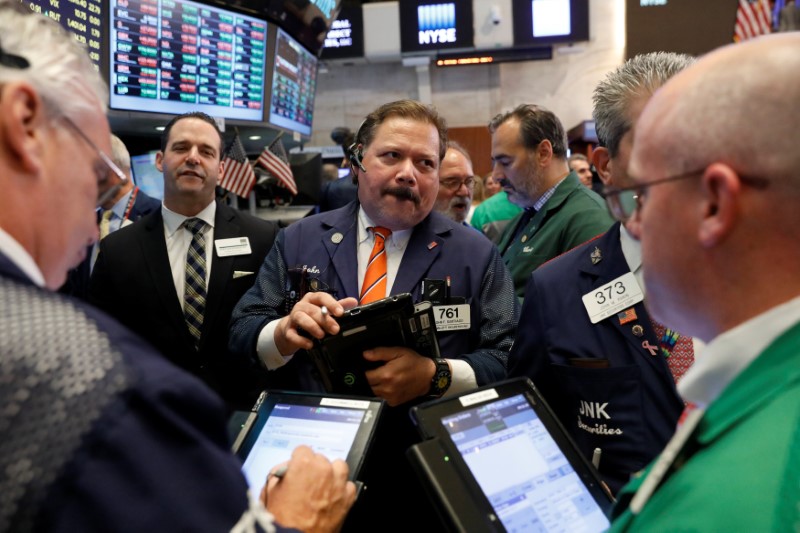By Marc Jones
LONDON (Reuters) - World stocks could be about to record their best start to a year since 1998, when global markets were recovering from the Asian crisis, while oil and the dollar are facing their worst first-half in years.
It has been a six months marked, first, by the crumbling of so-called Trump trades that were premised on U.S. President Donald Trump's pledges of multi-trillion dollar spending.
The second feature has been a political and growth outlook shift in Europe which has lured investors back to the continent.
As this graphic shows http://reut.rs/2sxO66c 16-17 percent gains in emerging markets (MSCIEF) and Europe (FTEU3) on a dollar-adjusted basis have boosted world stocks around 10 percent so far this year.
Oil (LCOc1) on the other hand is 2017's worst performer, despite almost 2 million barrels-per-day of OPEC supply cuts.
Undercut by high output from shale and some producers such as Nigeria, Brent crude futures have slumped 20 percent in their biggest first-half drop since 1997 (LCOc1). The price moves have rekindled memories of the 50 percent rout seen in the second half of 2014.
But equities have held up well despite a hefty tech share selloff earlier in June and a run of softer U.S. economic data which hint at slowing price growth and a major setback for the "Trumpflation" trades in vogue at the start of 2017.
Despite two Federal Reserve rate hikes already this year, the dollar (DXY) has fallen 4.5 percent against the world's other top currencies -- its worst start to a year since 2006.
"From a global perspective it is increasing the appetite for risky assets," said ABN Amro's chief investment officer Didier Duret.
Duret also noted the defeat for far-right, anti-establishment parties in French and Dutch elections, as well as a synchronised recovery in world growth. The euro zone is seen growing 2 percent this year, its best run in a decade, while latest data shows consumer confidence at a 16-year high.
In Brexit-bound Britain, which has just been through a messy election, the pound has dropped 3 percent against the euro, whereas UK government bonds and the FTSE 100 (FTSE) have risen 2.4 and 6.4 percent respectively. Emerging markets too have enjoyed a trade and growth bounce.
"There is a growing recognition we are seeing accumulative stability, with lower volatility and lower correlation between assets and this is constructive for creating momentum for equities," Duret said.
While U.S. stocks (SPX) have returned almost 10 percent year-to-date, many investors reckon European stocks offer better value - funds polled by Reuters every month have just upped euro zone equity exposure to a nine-month high.
"Previously there were lots of reasons not to invest in Europe. Now Europe is growing faster than the U.S.," said Pictet Asset Management's chief strategist Luca Paolini, who prefers European and emerging stocks.
The past week has seen biggest U.S. equity outflows in five weeks.
PERFECT LANDING
Emerging markets have shrugged off the U.S. rate rises and the oil and tech tumbles. While emerging equities are the top performers, bonds in emerging market currencies have returned almost 10 percent in dollar terms, while hard currency sovereign debt is up 6 percent.
"At the end of last year, everyone was long dollar but suddenly people realised the dollar was getting weaker. Usually when that happens it's very good for EM assets," said Francois Savary, CIO of Swiss investment manager Prime Partners.
There is likely room for more gains in the coming year, given the sector has underperformed for five years, he added.
But within emerging markets there are losers as well as winners: http://tmsnrt.rs/2dZbdP5
Russian equities, heavily oil-reliant and a star of late 2016, have lost 17 percent but energy importer Turkey's stock index (XU100) has risen 30 percent, despite inflation, domestic political risks and policy wobbles.
The Mexican peso
Perhaps the biggest surprise has been Poland's zloty
Brazil's real

"The question for the next six months is how far the positive European momentum should go," said ABN's Duret. "And can China control its slowdown. Can it continue to achieve a perfect soft landing?"